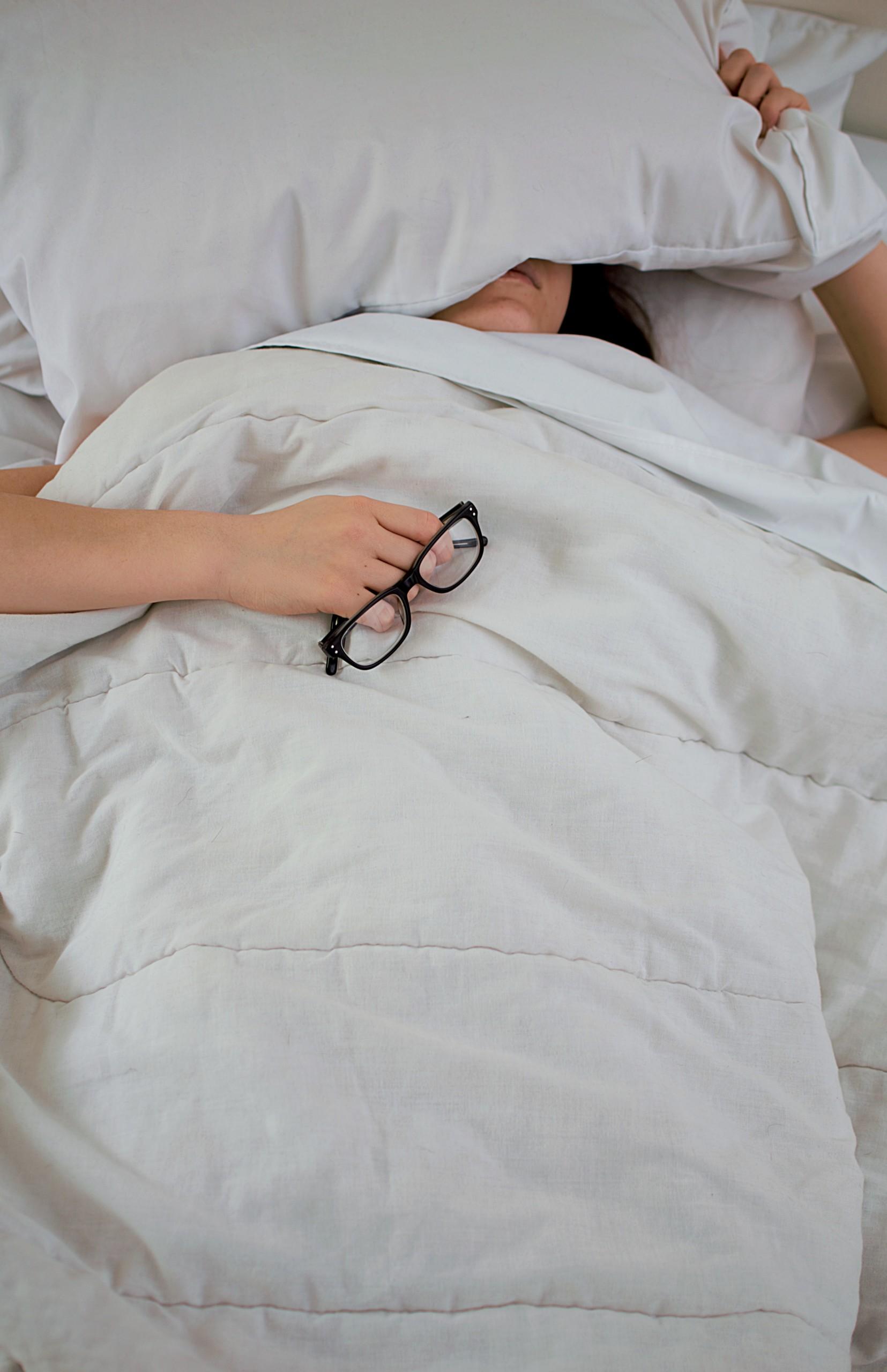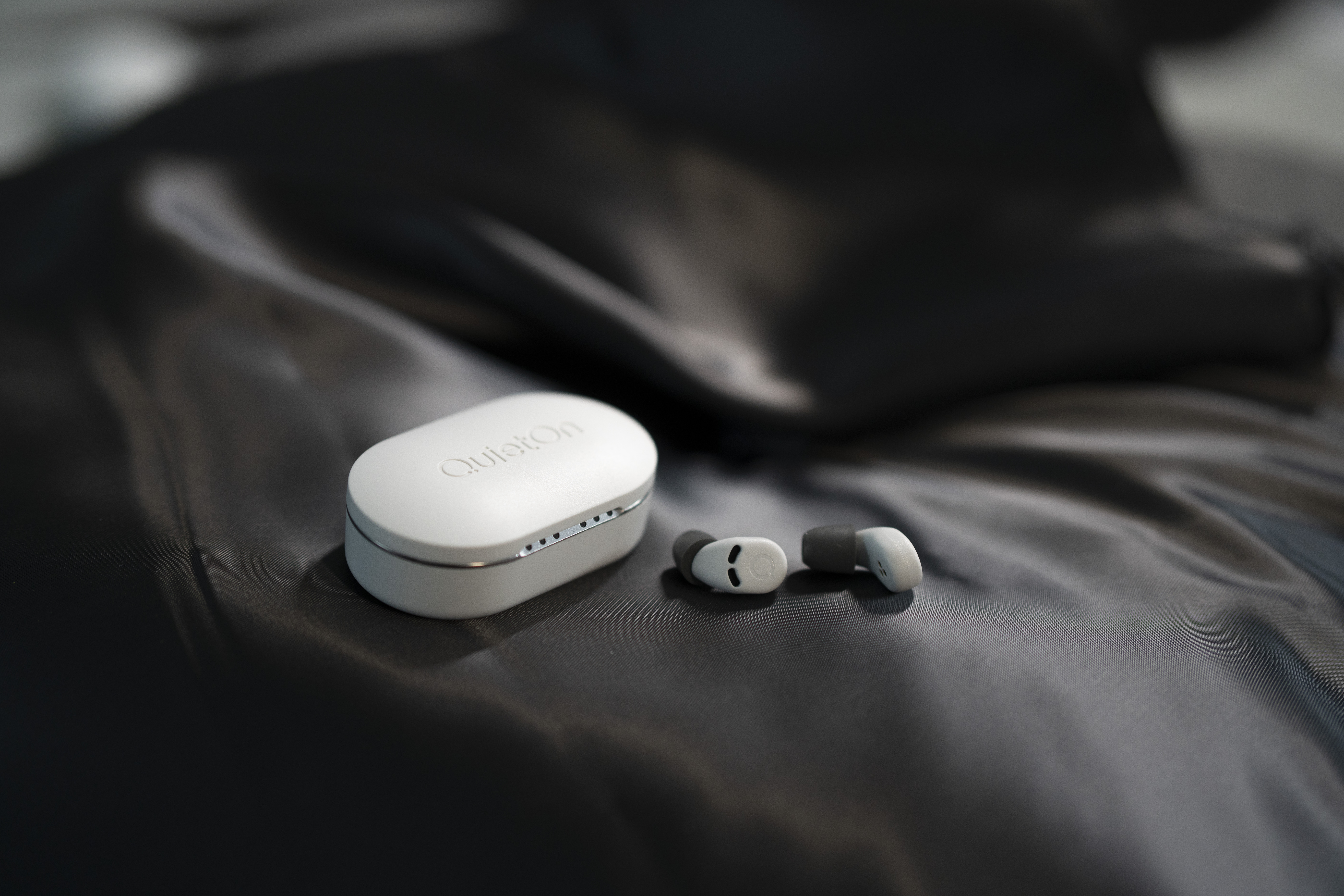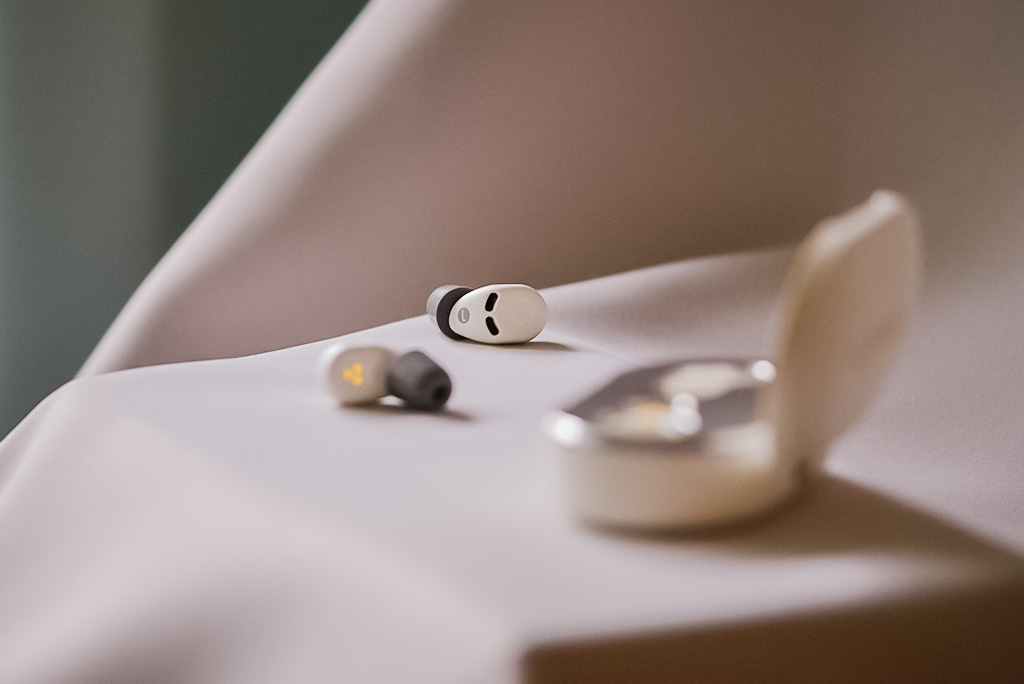Your cart is currently empty!
Sleep Debt – The Long-Term Side Effects
Everyone knows the unpleasant groggy feeling resulting from a short night’s sleep. Taking a nap or sleeping longer the next night works wonders, however, and everything’s soon back to normal. This is called sleep debt. As is the case with any debt, missing payments and/or taking more debt than you can repay, leads to problems.…

Everyone knows the unpleasant groggy feeling resulting from a short night’s sleep. Taking a nap or sleeping longer the next night works wonders, however, and everything’s soon back to normal. This is called sleep debt.
As is the case with any debt, missing payments and/or taking more debt than you can repay, leads to problems. When the lost sleep can’t be made up before more is lost, the eventual result is chronic sleep deprivation. Long term sleep debt causes a staggering amount of health risks and side effects. This subject begins our new series of articles touching on sleep deprivation. This time we’ll be covering the following topics.
1. What constitutes as sleep debt?
2. Sleep debt becoming chronic
3. Sleep debt as a physical hindrance
4. Sleep debt could kill you
5. Headache from sleep debt
6. Beat sleep debt with QuietOn
What constitutes as sleep debt?
The amount of people in the world who survive by sleeping systematically less than 7 hours per night rounds off to 0 to 1 percent of the whole human population. And by surviving we don’t mean staying alive but being able to avoid any adverse effects from short sleep. If you feel like you might be one of these lucky few, you should consider the fact that it would make you way luckier than a lottery winner – like way more.

Even though children need more sleep than their parents, adults still need 7 to 9 hours of sleep per night. This way sleep loss generally refers to sleep of shorter duration than 7 to 8 hours per night. The windows are there because we are all individuals. Some people have fog in their eyes for the whole day after less than 9 hours of sleep, while others feel just peachy with a tad over 7.
Most people can tell pretty well what kind of amount of sleep is natural to them and if not, it is fairly easy to determine by tuning in the messages your system is sending out as sensations. Getting in touch with your own natural needs is also possible with the fairly small effort of making notes and comparing them. Nowadays this is easier than ever as there are sport watches, and even rings, that practically do it for you.
Sleep debt becoming chronic
Sleep is the most important factor in the overall human health and well-being. It has a role in the mending and improving of practically every function in our system, starting from cellular reproduction and spanning all the way to cleaning our brain (both physically and mentally). This way it’s not far-fetched to say that any adverse effect that can be avoided with sufficient sleep could be considered a side effect of sleep debt.
Although even one poorly slept night can deal both physical and mental nuisance, for them to develop into actual long term side effects the sleep loss usually needs to be cumulative. To put this into other words, the main focus of the subjective sensations during occasional sleep loss is still mainly on the sleepy feeling. As sleep debt becomes chronic, also the consequences for health become more serious.
Still, currently more than 60 % of the world’s population feel they don’t get enough sleep. The percentage is even higher in civilized countries, most likely having to do with busy life schedules, entertainment and mobile devices.
Be your own boss
Many people are fully aware that many of their health problems are either partially or fully caused by insufficient sleep but are too over encumbered with work to do anything about the situation or can’t help staying up late enjoying free time. Read more about different causes for short sleeping here.

Sometimes a person suffering from symptoms of chronic sleep loss is unaware of problems until some of them become severe enough to force a timeout. On the other hand it is also possible that a person has acknowledged health problems but has failed to relate them to sleep debt. These kinds of situations can be explained by gradual habituation. Even though the feeling after a short night’s sleep is not pleasant, it’s worse for a person who has the tendency to always sleep recommended hours. Through a busy schedule it is easy to overlook the alarms of your own system and lose touch with your well-being altogether.
Sleep debt as a physical hindrance
As we’ve covered in our earlier articles on the significance of rest days and athlete recovery, sleep plays a crucial part in recuperating and recovering our system from both physical and mental strain. This doesn’t only apply to athletes, but to any and all of us. Imagine committing to help your friend move on a work night. You exercise somewhat regularly to keep up basic fitness but carrying heavy furniture takes a toll on you. Luckily your job is not physically strenuous and with the healthy habit of sleeping well you’re back in business with a little soreness in the muscles.
Now imagine you work in construction or other physically demanding field. In addition, you’re a gym enthusiast and like to play sports many times a week. Because of long hours and hobbies, you tend to procrastinate with getting to bed and sleep a trifle too little. On top of that you recently broke up with your spouse which is still taking a great toll. Unbeknownst to you, your system has been under too heavy a bombardment and now, setting down your friend’s couch, your back gives in. Alternatively, after the move you go home feeling relatively alright but the next morning you’re out of breath before you can switch on the coffee maker.
Take it seriously!
These examples are meant to point out the significance of sleep as both the cure and prevention in our daily physical existence. Physical adversities of sleep deprivation don’t necessarily have to manifest themselves as instantaneously as in the form of an injury or a state of overtraining/burnout but the likelihood of them, as well as other long term side effects, grows higher the longer the sleep debt is left to accumulate.
More often than not sleep debt affects your health in the way sandpaper consumes wood. For instance, you might have deduced that too little sleep lowers libido, but did you know that sleep deprivation can even decrease fertility?
Because sleep helps your system to regulate stress hormone levels, lacking sleep keeps your system in a state of hypertension (i.e. fight or flight). The elevated stress levels in turn keep your heart racing and your body in an inflammatory state and your immune system. These effects are more than capable of causing severe health problems in the long run. More of that next.
Sleep debt could kill you
Numerous studies have shown that when sleep debt has accumulated enough to tip the scales towards chronic sleep deprivation, it can cause a wide variety of long term side effects, many of which can be life-threatening or straight up lethal.

There is, for example, a distinct and directly correlating relationship between sleep loss and obesity: the greater the sleep loss, the greater the obesity. Insufficient sleep also has a relationship with an impaired glucose tolerance, a precursor to diabetes. In a study, adults who reported sleeping 5 hours per night or less were 2.5 times more likely to have diabetes when compared to those who slept 7 to 8. In those who reported 6 hours per night the likelihood was still 1.7.
On an even more serious note, according to a number of large studies sleep loss is connected to heart attack (as well as other cardiovascular health risks) and stroke. This can be explained with such factors as increased blood pressure as well as the aforementioned hyperactivity of the sympathetic nervous system and impaired glucose tolerance.
As sleep has a tremendous significance for memory and other brain functions it is not surprising there is a link between sleep deprivation and Alzheimer’s disease. This is based on studies suggesting that sleep clears out a metabolic waste product called beta-amyloid from the brain. In Alzheimer’s disease, beta-amyloid has gathered to form plaques that hinder brain function by disturbing communication between brain neurons.
As if this wasn’t enough, sleep deficiency has been stated to increase the likelihood of numerous cancers, some of them by a staggering 50 %. This has to do with sleep’s connection to cellular health and regeneration. One of sleep debt’s long term side effects, aging, is thus a result of this exact
Headache from sleep debt
By this we don’t mean the kind of headache that could be taken care of with ibuprofen, but the variety of problems that are prone to occur inside your head eventually if you deprive yourself from sufficient sleep.

Many of the long term cognitive and mental side effects of sleep loss are the same you might experience by sleeping only one night short. Trouble concentrating, irritability and memory problems to name a few. The difference is in the severity of these problems and the elevated risk of their repercussions – one of the most famous examples being the role fatigue played in the disaster of space shuttle Challenger.
Not that many of us will ever feel the burden of responsibility the magnitude of NASA’s space program on our shoulders but that doesn’t take away the significance of sufficient and good-quality sleep during our own challenges. Faulty brain function, memory blackout or inability to work because of cognitive problems aren’t something anyone should have to experience. Yet sick leaves at least partly driven by sleep deprivation are more common than ever.
The psychological effects of sleep deprivation are covered in more detail in the next article of this series.
Beat sleep debt with QuietOn
If you recognize signs or symptoms of sleep deprivation but feel like a change is a mountain too high to climb, remember that it is conquered like so many other obstacles – one step at a time. The smartest thing isn’t always trying to fix everything at once. Start with a small subtle thing that is easy enough to execute and makes you stronger in tackling the next one.
If you feel like you could sleep more, but simply can’t calm yourself or your surroundings, give a chance to QuietOn, the best Active Noise Cancelling earbuds in the world. In addition to making your commute and work days less stressful, they help you fall asleep faster and improve your sleep in numerous ways.
Sleeping long hours doesn’t necessarily mean the sleep is good quality. A person sleeping 9 hours can in fact get less actual sleep than a person who sleeps 7 hours soundly. With QuietOn you have a better chance of making sure that the hours you spend in bed chasing Zzzs doesn’t end up being a wild goose chase. When you sleep better, you sleep longer, and are better equipped against the peril of sleep debt and its long term side effects.
References
https://www.healthline.com/health/dr/sleep-deprivation/sleep-debt
https://laivfclinic.com/blog/sleep-and-fertility-why-getting-those-zzzzs-are-so-important/
https://www.nasa.gov/centers/langley/news/researchernews/rn_sleep.html
https://www.ncbi.nlm.nih.gov/books/NBK19961/
https://ww.nih.gov/new-events/nih-research-matters/sleep-deprivation-increases-alzheimers-protein
https://www.sleephealthsolutionsohio.com/blog/10-effects-of-long-term-sleep-deprivation/
https://thesleepdoctor.com/physical-health/cancer-and-sleep/
https://www.visualcapitalist.com/visualizing-worlds-sleeping-habits/
Related articles
Types of Stress Part 1: Different Causes of Stress And How They Affect Our Health
Rest Days
Is 5 Hours of Sleep Enough?
Improve Sleep Quality with QuietOn
Athlete Recovery – The Key Ingredients for Better Results






